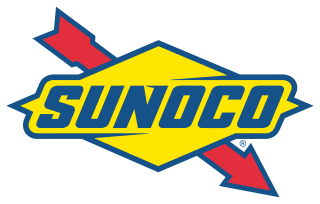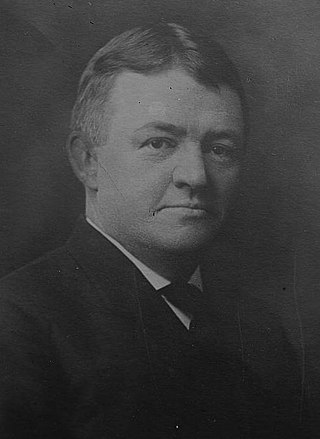
Sunoco LP is an American master limited partnership organized under Delaware state laws and headquartered in Dallas, Texas. Dating back to 1886, the company has transitioned from a vertically integrated energy company to a distributor of fuels. It was previously engaged in oil, natural gas exploration and production, refining, chemical manufacturing, and retail fuel sales, but divested these businesses. Sunoco is the largest independent distributor of fuels in the United States.
Koch Industries, Inc. is an American multinational conglomerate corporation based in Wichita, Kansas, and is the second-largest privately held company in the United States, after Cargill. Its subsidiaries are involved in the manufacturing, refining, and distribution of petroleum, chemicals, energy, fiber, intermediates and polymers, minerals, fertilizer, pulp and paper, chemical technology equipment, cloud computing, finance, raw materials trading, and investments. Koch owns Flint Hills Resources, Georgia-Pacific, Guardian Industries, Infor, Invista, KBX, Koch Ag & Energy Solutions, Koch Engineered Solutions, Koch Investments Group, Koch Minerals & Trading, and Molex. The firm employs 122,000 people in 60 countries, with about half of its business in the United States.

Valero Energy Corporation is an American-based downstream petroleum company mostly involved in manufacturing and marketing transportation fuels, other petrochemical products, and power. It is headquartered in San Antonio, Texas, United States. Throughout the United States and Canada, the company owns and operates 15 refineries, and one in Wales, with a combined throughput capacity of approximately 3 million barrels (480,000 m3) per day, 11 ethanol plants with a combined production capacity of 1.2 billion US gallons (4,500,000 m3) per year, and a 50-megawatt wind farm. A Fortune 500 company, before the 2013 spinoff of CST Brands, Valero was one of the United States' largest retail operators with approximately 6,800 retail and branded wholesale outlets in the United States, Canada, United Kingdom, Mexico and Peru under the Valero, Diamond Shamrock, Shamrock, Beacon, and Texaco brands.

Tesoro Corporation, known briefly as Andeavor, was a Fortune 100 and a Fortune Global 500 company headquartered in San Antonio, Texas, with 2017 annual revenues of $35 billion, and over 14,000 employees worldwide. Based on 2017 revenue, the company ranked No. 90 in the 2018 Fortune 500 list of the largest United States corporations by total revenue.

Citgo Petroleum Corporation is a United States–based refiner, transporter and marketer of transportation fuels, lubricants, petrochemicals and other industrial products. Headquartered in the Energy Corridor area of Houston, it is majority-owned by PDVSA, a state-owned company of the Venezuelan government.

Husky Energy Inc. was a Canadian company engaged in hydrocarbon exploration, headquartered in Calgary, Alberta, Canada. It operates in Western and Atlantic Canada, the United States and the Asia Pacific region, with upstream and downstream business segments. In the 2020 Forbes Global 2000, Husky Energy was ranked as the 1443rd-largest public company in the world.

Marathon Petroleum Corporation is an American petroleum refining, marketing, and transportation company headquartered in Findlay, Ohio. The company was a wholly owned subsidiary of Marathon Oil until a corporate spin-off in 2011.

Phillips Petroleum Company was an American oil company incorporated in 1917 that expanded into petroleum refining, marketing and transportation, natural gas gathering and the chemicals sectors. It was Phillips Petroleum that first found oil in the North Sea on December 23, 1969, at a position that was later named Ekofisk.
Flywheel, Shyster, and Flywheel is a situation comedy radio show starring two of the Marx Brothers, Groucho and Chico, and written primarily by Nat Perrin and Arthur Sheekman. The series was originally broadcast in the United States on the National Broadcasting Company's Blue Network, beginning on November 28, 1932, and ending on May 22, 1933. Sponsored by the Standard Oil Companies of New Jersey, Pennsylvania and Louisiana and the Colonial Beacon Oil Company, it was the Monday night installment of the Five-Star Theater, an old-time radio variety series that offered a different program each weeknight. Episodes were broadcast live from NBC's WJZ station in New York City and later from a sound stage at RKO Pictures in Los Angeles, California, before returning to WJZ for the final episodes.

Hess Corporation is an American global independent energy company involved in the exploration and production of crude oil and natural gas. It was formed by the merger of Hess Oil and Chemical and Amerada Petroleum in 1968. Leon Hess served as CEO from the early 1960s through 1995, after which his son John B Hess succeeded him as chairman and CEO. The company has agreed to be acquired by rival oil company Chevron.

The Telegram & Gazette is the only daily newspaper of Worcester, Massachusetts. The paper, headquartered at 100 Front Street and known locally as the Telegram or the T & G, offers coverage of all of Worcester County, as well as surrounding areas of the western suburbs of Boston, Western Massachusetts, and several towns in Windham County in northeastern Connecticut.

Ultramar is an Eastern Canadian gas and home fuel retailer, with its head office located in Montreal, Quebec. It is the largest oil brand in Quebec and operates gas stations and home fuel delivery in Ontario, Quebec, and Atlantic Canada.

Petron Corporation is the largest oil refining and marketing company in the Philippines, supplying more than a third of the country's oil requirements. It operates a refinery in Limay, Bataan with a rated capacity of 180,000 barrels per day (29,000 m3/d). From the refinery, Petron moves its products mainly by sea to 32 depots and terminals throughout the country.

The Colonial Beacon Gas Station was a historic gas station at 474 Main Street in Stoneham, Massachusetts. It was built c. 1922 by the Beacon Oil Company to be a flagship station in their Colonial chain of filling stations. The concrete and stucco building was designed by the Boston firm of Coolidge & Carlson. It had two main sections: an octagonal section that once served as a drive-through filling area, and a rectangular service area to its left. Corinthian columns originally supported the octagonal section; these were later covered over or replaced. The octagonal section was topped by a round dome, at whose apex was a small pillared section that was once topped by a grillwork globe that housed a light. This light, when illuminated, became the beacon which gave the station its name. The service area and pumping bay had a band of starburst panels that ran along the top of the flat roofed service area and around the base of the pumping area dome. The structure was one of about 10 Colonial Oil stations built with a golden dome to resemble the Massachusetts State House on Beacon Hill.

James Lorin Richards was an American financier and industrialist based in Boston, Massachusetts.

Sherman Leland Whipple was an American attorney who was one of Boston's leading trial lawyers during his lifetime.
The Beacon Oil explosion occurred on February 10, 1928, at the company's distilling plant in Everett, Massachusetts. 14 people were killed in 36 injured in the disaster.
John C. Pappas (1906–1972) was a Greek-American jurist and businessman.














